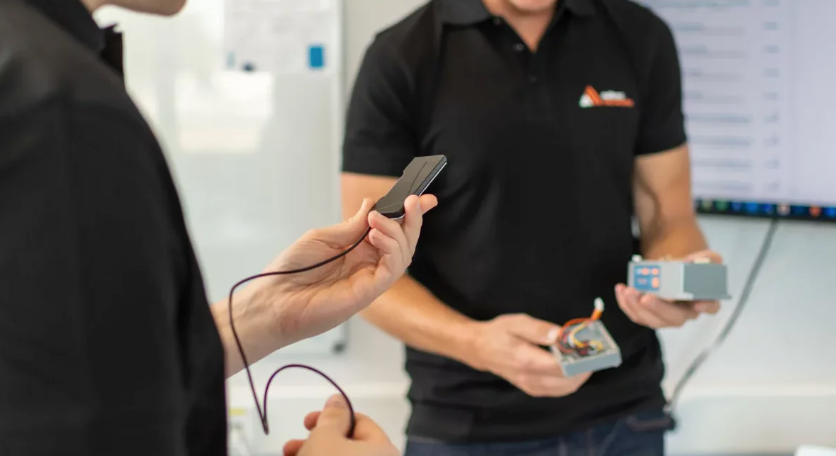Written by Zephyr Project member Memfault

This article originally ran on the Memfault website. For more content like this, click here.
About Adhoc Networks
Adhoc Networks is a northern German-based company offering wireless sensor technology. Driven by the mission to make the world more sustainable with simple and easy-to-use products, adhoc offers devices developed in-house for fill-level monitoring in waste containers.
Bundling smart sensors with their web platform, adhoc offers customers a great deal of features for waste disposal management like dynamic route planning, scheduling, predictions, and historical data analysis. Since they are the experts in sensor technology, adhoc operates the whole system for their customers and offers their product as a service subscription. That way, their customers can fully focus on improving their business efficiency and save valuable resources without having to build knowledge in sensors and platforms.
Challenge
Adhoc networks distributes their solution as a service, so they handle operations of their sensors, allowing their customers to focus on business efficiency. Adhoc promises its customers an operational solution at all times with frequent updates, making device reliability a key priority. To keep these promises, adhoc knew they would need monitoring and OTA update capabilities built into their devices from the start. However, being a young startup, they calculated that it would take close to a year to build out a robust in-house device monitoring solution, which would also take time away from building their business application. Furthermore, scaling and maintaining their in-house systems would become more costly and resource-intensive as their fleet of devices grew.
Solution
Adhoc’s product for fill-level monitoring in waste containers comprises of an in-house developed device equipped with a ToF sensor and a cellular modem from Nordic Semiconductors with Zephyr RTOS integrated, using NB-IoT and LTE CatM1 for transmission. Taking advantage of and Nordic Semiconductor’s nRF91, which comes with Memfault pre-integrated, adhoc tested out Memfault on 100 devices free and quickly saw the benefits. Previously, adhoc used AWS IoT Core and their frontend for some basic monitoring and OTA release management capabilities but could not get the functionality and broad range of metrics they needed.
Results
With Memfault’s performance monitoring and OTA update capabilities, adhoc can maintain and improve its device fleet reliability from development until production.
During development, Memfault empowers adhoc to iterate on their devices by allowing them to pinpoint any issues their devices report, easily add new metrics, and collect insights “on the fly”. Before sending out the sensors to customers, they use Memfault to check if there are any trace events or sensor errors like bad signal quality or battery level. Once the devices look stable without any issues, they can confidently ship them to customers.
Once the devices are out in the field, adhoc prioritizes their customers’ user experience on their platform by focusing on their customer’s data and letting Memfault cover the maintenance and aspects of the devices themselves. Memfault enables adhoc to ship frequent firmware updates to specific device cohorts allowing them to fix bugs and release new features to continuously improve the quality of their devices. With OTA updates, adhoc added algorithms for its gyro sensor to detect container collections, improved the driver of its lidar sensor, and are continuously optimizing their devices running a single AA battery to reduce power consumption. With Memfault’s release management capabilities, adhoc can monitor their release performance and identify any possible issues.